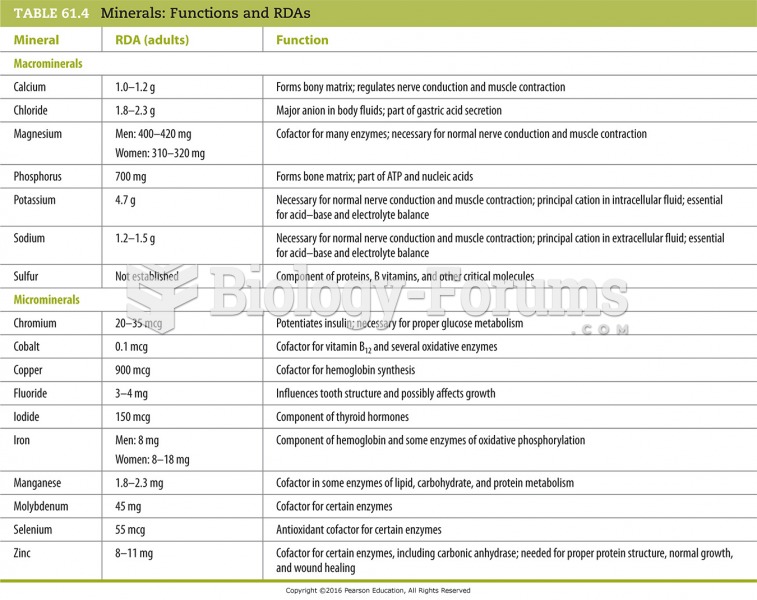Answer to Question 1
Ideally, we should be able to get our vitamins and minerals through a balanced diet, but as Bruce Ames and his colleagues argue, we are far from achieving this goal, especially among the poor.. They also note that particular populations may need to take vitamin supplements even if they are eating an ideal diet. For example, B12 deficiencies may develop in older people due to age-related declines in their ability to efficiently absorb this vital micronutrientin its crystalline form found in supplements it is more readily absorbed than from foods.
Vitamin D3 manufactured from the skin's exposure to ultraviolet rays is less efficiently generated with age and is diminished in dark-skinned individuals. The USDA and HSS Dietary Guidelines for Americans also note that Americans consume too little calcium, vitamin D, and potassium. Thus, it may be prudent to take a daily multivitamin/mineral supplement as insurance, preferably one with USP (United States Pharmacopeia) on the label. The USP designation indicates that the supplement meets independent testing quality criteria. Today more than half of Americans take vitamin supplements.
Answer to Question 2
Saturated fats: This form of fat is solid at room temperature and is found primarily in animal sources such as meat and dairy. According to the American Heart Association (AHA), saturated fat raises levels of LDL (low density lipoprotein the bad cholesterol) which increases our risk of heart disease.
Trans-fats: These fats are generally vegetable oils that have been chemically modified to make them solid through a process called partial hydrogenation. Trans-fats may create an even greater risk of heart disease than saturated fats through their ability to elevate circulating LDL levels.
Cholesterol: The body manufactures this sterol compound and uses it as a component of our cell membranes or in steroidal hormones such as the corticosteroids. Our body makes all we need and therefore does not require it in food.
Monounsaturated fats: These plant-based fatty acids, liquid at room temperature, are considered healthy fats because they reduce circulating LDL and total cholesterol levels, raise HDL, and reduce the risk of heart disease.
Polyunsaturated fats: These healthy fats are found in plant-based foods and also found in fish. They can lower LDL and total cholesterol, raise HDL, and protect against heart disease.







